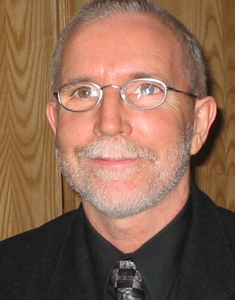
When I was asked to join the West Yorkshire and Harrogate Cancer Alliance Board as its patient voice, I saw it as a great opportunity.
I retired from a career in children’s social care when I received my initial bladder cancer diagnosis in August 2010. Following radical surgery in 2011, I became somewhat of a ‘man on a mission’, keen to make use of skills I had developed and expertise I had gained in my professional career and also wanting to use my own experiences of cancer care and treatment to help others affected across the region.
I’m a former Chair of the Yorkshire Cancer Patient Forum, a Patient Trustee for Action Bladder UK and also involved in a number of other, mostly bladder cancer related, health projects, including clinical guideline development. I’m passionate about equality of access to high quality care and believe many patients would be shocked to know that the jointly-developed shared cancer pathways across our region haven’t always been consistently implemented, to ensure everyone is treated the same.
In my experience, many people whose lives have been and continue to be affected by cancer are more than willing to share their stories in the knowledge that doing so can help to make things better for others - either by supporting improvements in care or treatment, or simply helping others to realise they are not alone in what they are going through.
There are so many different ways to get involved, from offering to read patient information materials to check they are in plain English and easy to understand, right through to co-production - patients, carers, providers, funders and voluntary organisations working together as equals to design and deliver services.
Some people may simply wish to articulate particularly good experiences, and give recognition to staff, either clinical or non-clinical, who have helped or cared for them. Conversely, others may wish to share where that care and support fell short.
The opportunities for patients and carers to share their experience and influence what happens to them and others should be ‘multi-layered’. In other words, it should be made easy at every level in an organisation for staff to listen to and learn from what patients and carers have to say. It could be chatting to a patient at the bedside, it could be asking carers what they need when a patient is discharged home, or it could be participating in decision-making through executive or management team meetings, including at Board level. Ideally it would be all of these things.
My five top tips for organisations would be as follows:
- Ensure every single member of health and care staff is aware of the difference they personally can make to experience of care. It’s often the small things that make the difference.
- Support people to get involved in their own way, at their own pace.
- Demonstrate clearly where patient experience has improved as a result of feedback.
- Recognise and respect that some people don’t want to share. Also, the point at which people may choose to do so may vary.
- Those who give their time and commitment to sharing their personal experiences aren’t in it for the money, but…. they should not lose out financially for doing so. Out of pocket expenses should be a minimum.
The Cancer Alliance Patient Experience project group is dedicated to looking at new, innovative ways to ensure that patient experience is used to drive future improvements, particularly through the use of new information and digital technology, and to champion parity between patient experience, clinical effectiveness and safety.
It acts as a resource for all the other Alliance workstreams - Early Diagnosis, High Quality Services, Living With and Beyond Cancer and Tobacco Control) – each of which is developing a plan for how patients will inform the delivery of its workplan and priorities.
It’s an exciting and positive time for our Alliance right now, with changes proposed to the way in which we work and our Board is structured. I am keen that patient and public involvement will continue to be an integral part of the governance process, with recruitment and training support provided to facilitate this.
This, and the forthcoming establishment of an Alliance community/patient panel, will strengthen governance and accountability, scrutiny and due diligence, which in turn can only benefit patients and improve their experience
Phil Kelly was the first Patient Voice Board Member with the West Yorkshire and Harrogate Cancer Alliance and is also a former Chair of the Yorkshire Cancer Patient Forum








